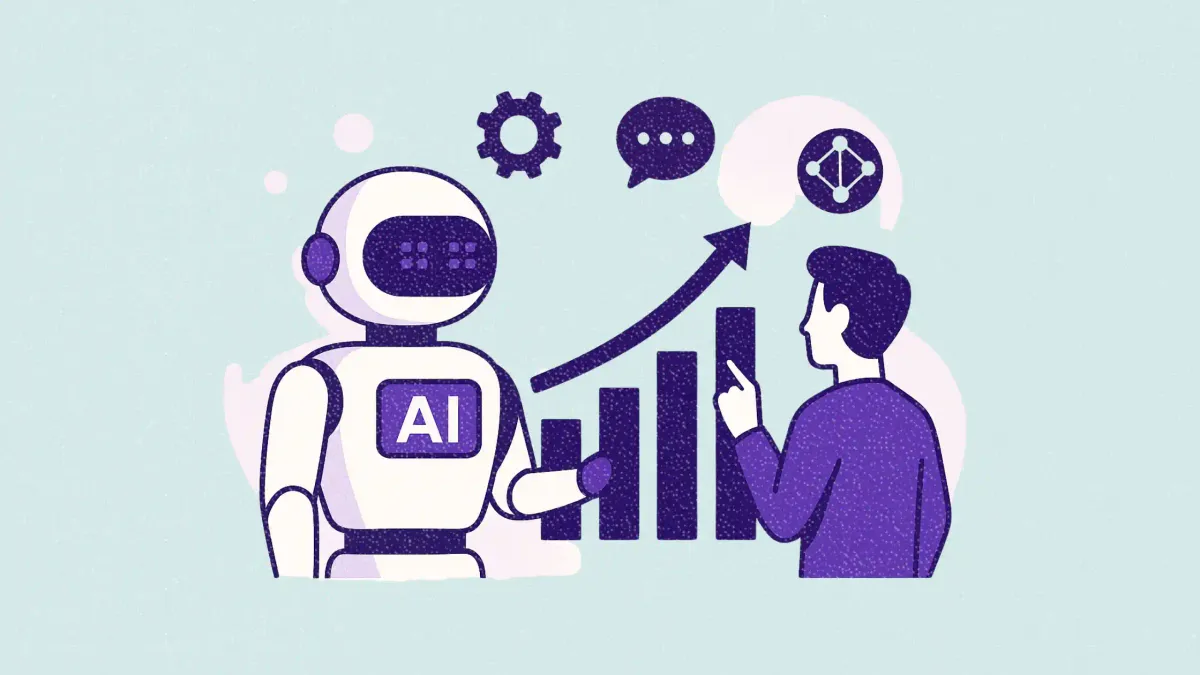Are publisher-branded AI engines the next big thing or a dead end?
More publishers are launching their own AI answer engines. Is this smart strategy or just digital desperation?

With ChatGPT and other AI engines siphoning off web traffic, some publishers are taking matters into their own hands. They're building AI-powered answer engines that live directly on their sites.
These tools are designed to mimic the chatbot experience without sending readers elsewhere.
This article explores the emerging trend of branded publisher AI engines, what’s driving the shift, and what it could mean for marketers navigating the post-traffic era.
Short on time?
Here’s a table of contents for quick access:
- What’s happening with publisher AI engines
- Why this trend is gaining traction
- Strategic implications for marketers

What's happening with publisher AI engines
The idea seemed unlikely at first: that publishers might host their own AI answer engines, trained only on their proprietary content. But companies like Taboola and even industry organizations like INMA are doing exactly that.
Taboola’s new tool, DeeperDive, is already live on USA Today. It acts like a chatbot embedded in the publisher’s site, trained only on that publisher’s content. The interface mimics popular AI assistants, but instead of scraping the entire web, it surfaces relevant content from that single publisher. Think of it as a smarter, AI-powered recirculation widget.
Meanwhile, stealth-mode startups are also building similar tools. At least one unnamed company has two publisher widgets live already, with public details expected to emerge after October 1.
Why publishers are doing this
Let’s be clear: these tools aren’t designed to recover traffic lost to AI search engines like ChatGPT. As Taboola CEO Adam Singolda puts it, that traffic is already gone.
Instead, tools like DeeperDive aim to deepen user engagement for people already on the site. Publishers are betting that if they can keep readers around longer with chatbot-style navigation, they can extract more value. Think more pageviews, richer first-party data, and better ad targeting.
There’s also a case for publishers with paywalled or exclusive content. According to Gabriel Dorosz, former Head of Audience Strategy at The New York Times, these AI engines can help paying subscribers make sense of deep research archives, case studies, and data-rich insights. This kind of content isn’t easily accessible elsewhere.
Politico and The Information have launched similar tools. Politico Pro offers an AI chatbot that helps compile research reports. The Information has its own assistant, Deep Research, to help subscribers dig through proprietary reporting.
The catch? These AI tools only add value if the underlying content is actually worth something. If a publisher is pumping out commodity news, the chatbot won’t offer anything users couldn’t already get from a free search engine.
What marketers should know
Here’s what this shift means for marketers working with or advertising on media sites:
1. Expect more chat-based user journeys
AI answer engines change how users discover and interact with content. Instead of linear navigation or clicking suggested articles, users type natural language queries and explore through conversation. This opens up opportunities for intent-based targeting and contextual ad placement that aligns with specific user questions.
2. The rise of “on-site AI” could reshape ad engagement
If tools like DeeperDive can drive longer sessions and more interaction, that creates more surface area for native ads and sponsored content. Marketers should start exploring how these engines might become high-quality ad inventory in the near future.
3. First-party data becomes more valuable
Because these tools are hosted on publisher sites, they enable deep tracking of what users are asking and reading. That makes them a goldmine for publishers. And by extension, for marketers who want cleaner audience segmentation and stronger data partnerships.
4. Only premium content will win
For branded answer engines to work, the content has to be truly differentiated. Marketers partnering with publishers should assess whether the content offers unique value or just repackaged commodity news. If the latter, don’t expect much lift.
5. Look for new partnership models
Most publishers cannot afford to build AI engines solo. Partnerships with firms like Taboola that offer rev-share models could become more common. If you’re buying media or exploring sponsored content, watch for bundled deals tied to these tools.
Branded AI answer engines won’t fix publishers’ traffic problems. But they might offer a smarter way to engage the readers they still have.
For marketers, these tools signal a new wave of content discovery, user intent tracking, and on-site engagement strategies. Keep an eye on how they evolve. Your next audience insight might come from a chatbot, not a click.




